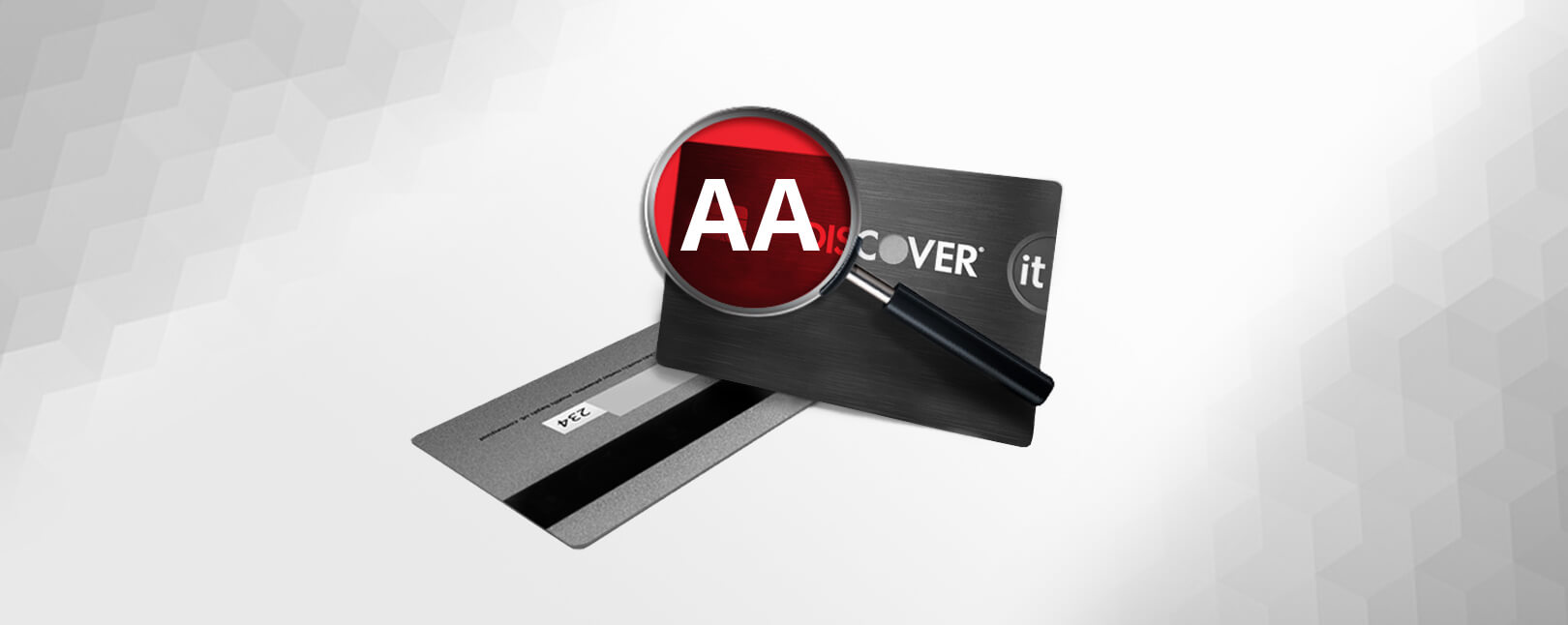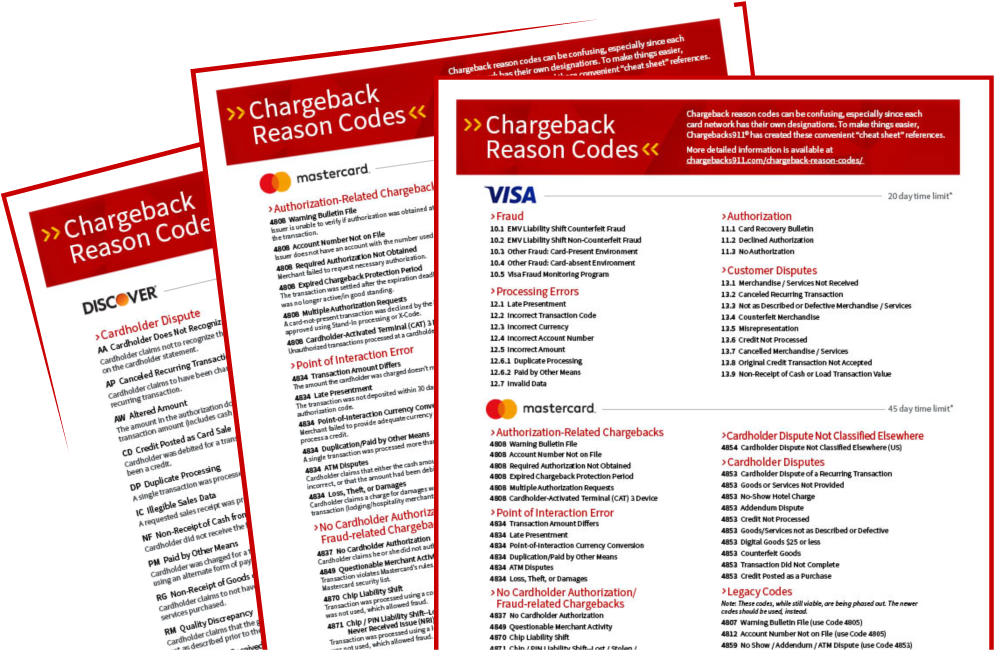
What Merchants Can Do About Discover Reason Code AA Chargebacks
Although Discover is the smallest of the four card networks in the United States by card volume, its chargeback process is just as robust and well-developed as its larger peers.
Discover has roughly two dozen reason codes organized under four different categories: service disputes, processing error disputes, fraud disputes, and reason codes for dispute compliance. Discover Reason Code AA is categorized under the “service disputes” category.
In this article, we’ll explore what this reason code is and when you might encounter it. We’ll also talk about how you can respond to Code AA chargebacks, and how to prevent them from occurring.
Recommended reading
- What is Compelling Evidence? Examples & Tips to Win Disputes
- Chargeback Stats: All the Key Dispute Data Points for 2025
- What Happens When You Dispute a Transaction?
- Monica Eaton Named a Finalist for ‘CEO of the Year’!
- Chargebacks911® Honored for “Scary Good” Show Presence!
- PayPal Scam Emails: How They Work | How to Identify & Avoid
What is Discover Reason Code AA?
Discover reason code AA is “Does Not Recognize.” It occurs when a cardholder claims they do not recognize a transaction on their debit or credit card statement.
An issuer may file a chargeback using this reason code in the case of a card-present transaction with a missing PIN entry if select circumstances apply. Reason code AA can also be issued when your response to a ticket retrieval request fails to resolve the customer’s inquiry.
You can also encounter this code for several other reasons, too. For example, reason code AA can apply to select situations where an authentication was successful, but you are classified under select merchant category codes (MCCs). We’ll get into more detail on this later.
What Caused This Dispute?
Reason code AA is most often issued when a cardholder files a chargeback after encountering a transaction they can’t recall authorizing, and a ticket retrieval request didn’t offer sufficient clarity. Examples of this can include:
Disputes involving sellers assigned to select merchant category codes (MCCs) can be filed even if you receive a Discover ProtectBuy Authentication Response of “Authentication Successful” or “Authentication Attempted.” MCCs include:
| MCC | Description |
| 4829 | Money Transfer – Non-Financial Institution |
| 5967 | Direct Marketing Inbound Teleservices |
| 6051 | Quasi Cash Non Financial Institution |
| 6540 | Non-Financial Institutions |
| 7801 | Government Licensed Online Casinos |
| 7802 | Government Licensed Horse/Dog Racing |
| 7995 | Betting |
It should be noted that this reason code does not apply to ATM transactions, in-app purchases, or transactions involving fraud, among others.
Issuers can’t send retrieval requests before initiating Code AA chargebacks against sales processed at an unattended Customer Activated Terminal (CAT).
How to Respond to Discover Reason Code AA Chargebacks
Let’s say you follow all the right practices. You use recognizable billing descriptors and follow all of the Discover network’s rules for merchants…but still get hit with a Reason Code AA dispute.
If you believe that the chargeback is invalid, you can challenge it using the chargeback representment process. This tightly-regulated and time-sensitive process allows merchants to compile compelling evidence that proves that the transaction under dispute is legitimate and that the cardholder’s reason for the chargeback is not.
Evidence submitted should be relevant and address the reason code issued. For Code AA chargebacks, relevant evidence could include shipping records confirming the customer received the goods or service, transaction documents (e.g. purchase orders, invoices, receipts) showing the cardholder authorized the transaction, or communications between the merchant and the cardholder.
To make an even stronger case, you should submit a concise rebuttal letter that summarizes the transaction at hand, describes the counter-evidence supplied, and refutes the cardholder’s claims. Then, you should combine the evidence and letter into a single representment package. You should submit all the documentation no more than 20 days after receiving notification of the chargeback.
Discover will review the representment package and either uphold or reverse the transaction. If the parties reach an impasse, the dispute escalates to arbitration stage, at which point you get 30 days to furnish additional evidence. Discover will then arbitrate the case within 15 days.
In a Visa or Mastercard chargeback, the merchant (and acquirer) works directly with the cardholder (and issuer) until the dispute reaches arbitration; only then does either card network step in. Discover is different: the network serves as the arbiter as soon as an initial chargeback (or ticket retrieval request) is filed.
Acceptable Evidence for Discover Reason Code AA Responses
As mentioned earlier, you can maximize your chances of winning by submitting relevant and compelling evidence in response to Reason Code AA chargebacks. Examples of acceptable evidence include:
- Transaction documentation like a valid authorization code to prove that the cardholder approved the card transaction, cash advance, or cash at checkout.
- A card imprint, proof of PIN entry or cardholder verification method, or similar convincing evidence.
- Proof of the transaction amount and confirmation that an authorization response was approved and provided for the card-present card sale.
- Shipping records, receipts or other documents showing that goods or services were delivered and received by the cardholder and that the disputed card transaction was processed in line with card network rules.
- Proof that the cardholder received cash equivalent to the billed amount through a cash advance or cash at checkout transaction.
- Proof that you credited the account to compensate for a billing error, in line with card network rules that permit the issuance of credit.
How to Prevent Discover Reason Code AA Chargebacks
Chargebacks are notoriously expensive; in 2023, merchants lost an estimated $117.46 billion to disputes. Financial consequences aside, chargebacks cause you to suffer from strained relationships with acquirers and customers. Luckily, you can avoid these consequences by preventing chargebacks. Here are several suggestions:
#1 | Use Easy-to-Recognize Billing Descriptors
Billing descriptors come in two types, static and dynamic, and help customers identify and remember what and where they bought something. Recognizable billing descriptors, which should feature your “doing business as,” or “DBA” name, can help cardholders recall their purchases. This is a tactic that strikes at the root cause of Reason Code AA chargebacks.
#2 | Provide Proactive Customer Support
Have an email address and toll-free number that customers can use to relay their questions, comments, or concerns. Make sure this information is plastered all over your site, and can be found from any page. Customer service representatives should be empowered to offer concessions or no-questions-asked refunds as a way to preemptively prevent chargebacks from happening.
#3 | Employ Fraud Detection Software
You can use fraud detection tools, like the Address Verification Service, to confirm that the billing address a cardholder is using to make a purchase matches the one their issuer has on file. You can likewise use multi-factor authentication measures to verify the identity of the buyer, along with fraud scoring.
#4 | Review Chargeback Data
If you frequently analyze the chargeback reason codes you receive for patterns or trends, you can respond strategically to areas of greatest concern. For example, if you identify that most chargebacks are caused by unclear billing descriptors, you can rework those descriptors and make them more recognizable.
You have a lot on their plates when it comes to running a successful business. From keeping customers happy to improving products and services and fighting costly chargebacks. Without the right expertise or systems in place, chargebacks can lead to reputational damage or operational disruption.
Want to combat chargebacks, but don’t know where to start? Reach out to Chargebacks911®, the market leaders in chargeback prevention and representment, for a no-obligation ROI analysis today.










